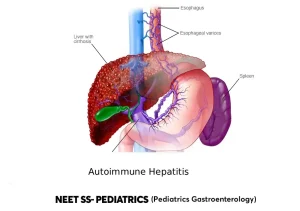Overview
Diagnosis
Autoimmune hepatitis is diagnosed using a combination of blood tests and liver biopsy.
-
Blood tests: Detect antibodies to distinguish autoimmune hepatitis from viral hepatitis and other liver conditions. They also help determine the type of autoimmune hepatitis.
-
Liver biopsy: A small sample of liver tissue is taken using a thin needle through a small cut in the skin. The tissue is examined in a laboratory to confirm diagnosis and assess the degree and type of liver damage.
Treatment
The goal of treatment is to slow or stop the immune system attack on the liver, preventing further liver damage.
-
Medications:
-
Prednisone: A corticosteroid that reduces immune activity. Usually prescribed at a high dose for the first month, then gradually tapered to minimize side effects such as diabetes, high blood pressure, weight gain, cataracts, glaucoma, and bone weakening.
-
Azathioprine (Azasan, Imuran): Often added to reduce prednisone dosage and side effects.
-
-
Long-term treatment: Even if remission occurs, autoimmune hepatitis can return if medications are stopped, so many patients require lifelong therapy.
Liver Transplant
-
Needed when medications fail to control the disease, or in cases of cirrhosis or liver failure.
-
Procedure: The diseased liver is replaced with a healthy liver from a deceased or living donor.
-
Living-donor transplant: Only part of a healthy liver is transplanted. Both donor and recipient livers regenerate cells quickly.
-
Advertisement

